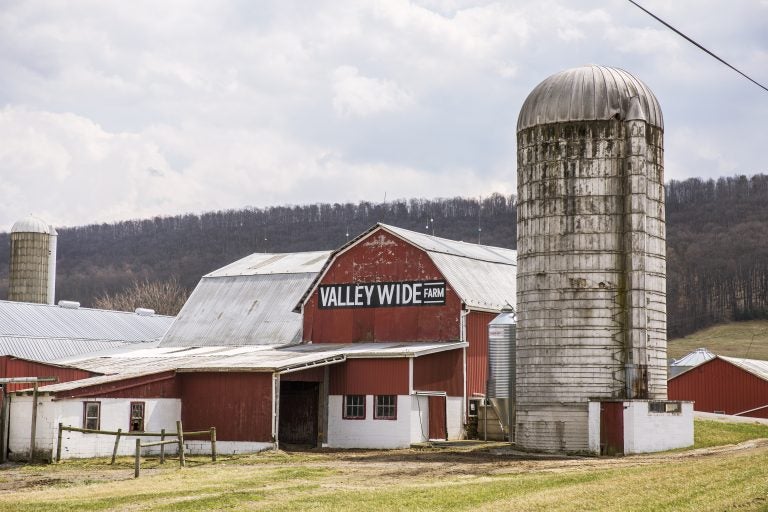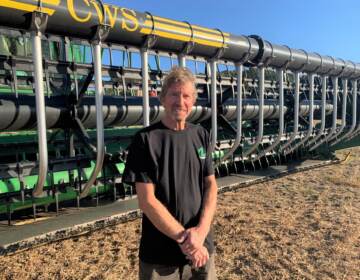Still reeling from 2018 rainfall, Pa. farmers offered emergency USDA loan
Pennsylvania had one of the wettest summers on record last year. The intense rainfall and flooding caused farmers across the state to lose significant crops.

Bethany Coursen and her husband own the Valleywide Farm in Centre County. Coursen said last year's rain has a lasting impact on her farm. (Min Xian / Keystone Crossroads)
Pennsylvania had one of the wettest summers on record last year. According to the National Oceanic and Atmospheric Administration, July 2018 was the rainiest July in the past 124 years. The intense rainfall and flooding caused farmers across the state to lose significant crops, and 61 counties declared disaster.
Bethany Coursen, a farmer in Centre County, said the weather made everything from planting to harvesting more challenging. Her farm grows corn, hay and soybeans and milks 50 to 60 cows.
“Last year was really tough,” said Coursen, who is also the president of the county’s farm bureau. “[The rain] started right out of the gate in the spring, which made it challenging to get your spring forages off, made it challenging to get your corn and your soybeans planted. And it just never stopped.”

Coursen said the wet weather had a lasting impact. A lot of farmers had losses from not being able to get into the fields in a timely manner. She said the final harvest of last year’s corn crop only happened a few weeks ago, which is very unusual.
Coursen expects to continue to deal with toxins and molds resulting from the rain, which will cost extra in the farm’s operation.
In March, the U.S. Department of Agriculture began offering a low interest disaster relief loan for most of Pennsylvania, as well as parts of New York and New Jersey. It’s intended to help farmers replace what they lost due to the rain.
Farmers can borrow an amount that’s 100 percent of their loss or a maximum of $500,000.
Coursen isn’t planning to apply. With consistently low dairy prices and the trade dispute between U.S. and China impacting her soybeans, she is not in the position to take on debt.
“To take on more money, at least for my perspective, that’s certainly not what we want to do,” Coursen said.
Gary Groves, the head of the Farm Service Agency of USDA in Pennsylvania, said he understands completely.
“A lot of people have had debt problems and, in some cases, especially dairy, it’s hard to get cash flow,” Groves said. “We’re not out promoting it, per se, because I think it’s an individual’s decision, but we want people to be aware of it.”
Eligible farmers have until November 20 to apply for the emergency loan through the Farm Service Agency in their counties. Farmers in Columbia, Lebanon and York Counties have until July 29.
Between the dairy crisis, turmoil in the soybean market and the volatility of the weather, Coursen said spring planning for this year was more stressful than usual.
“It was challenging to plan,” she said, “because you don’t know what’s coming up next.”
WHYY is your source for fact-based, in-depth journalism and information. As a nonprofit organization, we rely on financial support from readers like you. Please give today.






